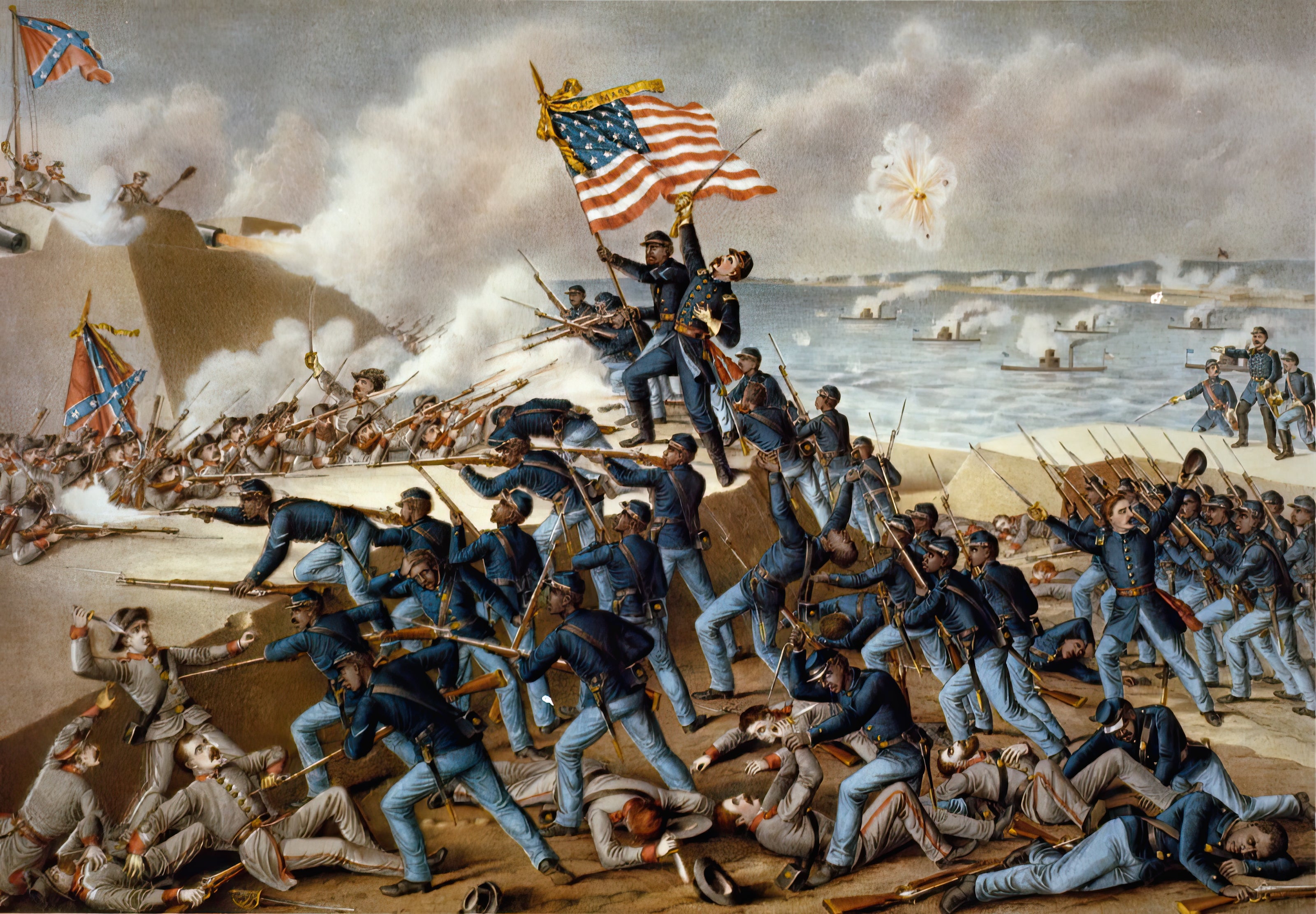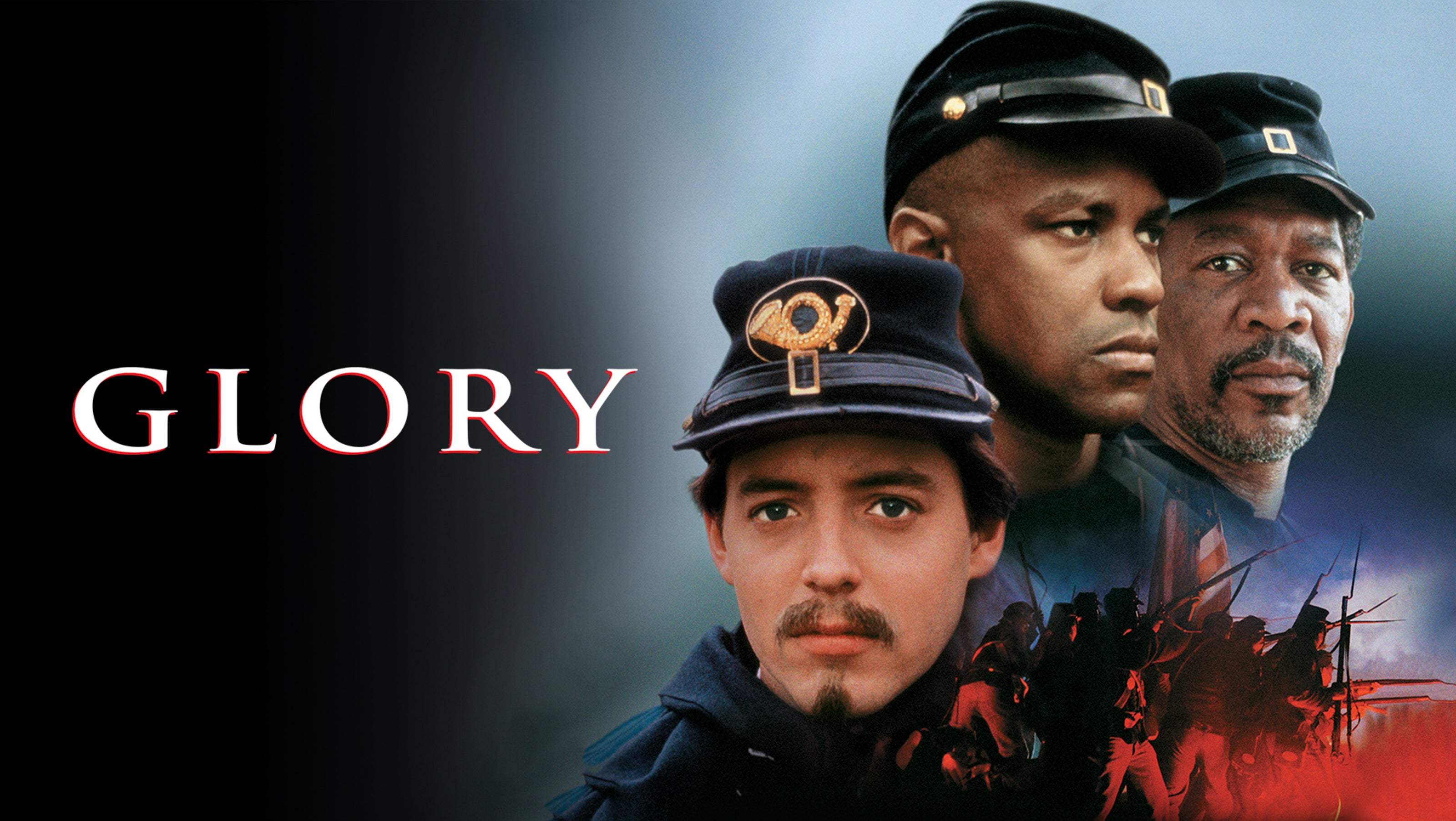
Thunder at the Gates: The Black Civil War Regiments that Redeemed America (the true story depicted in the film "Glory")
Thunder at the Gates by historian Douglas R. Egerton tells the powerful and inspiring story of the Black soldiers who fought in the Union Army during the Civil War, focusing primarily on the famed 54th and 55th Massachusetts Regiments and the 5th Cavalry Regiment. These units, composed of Black soldiers, played a crucial role in the Union's fight against the Confederacy and the larger battle for emancipation and civil rights.
Egerton begins by tracing the historical context leading to the formation of the Black regiments. Despite widespread racism in the North, which initially prevented Black men from serving in the military, the increasing toll of the war and the political influence of abolitionists like Frederick Douglass helped change public opinion. After the Emancipation Proclamation in 1863, Black soldiers were allowed to enlist, and the creation of the 54th Massachusetts Regiment, under the command of Colonel Robert Gould Shaw, marked a pivotal moment.
The book meticulously recounts the journey of these regiments, from their formation to their training, and ultimately to their fierce battles on the frontlines. The centerpiece of Thunder at the Gates is the heroic assault on Fort Wagner in July 1863, where the 54th Massachusetts led a charge against an impregnable Confederate stronghold in South Carolina. The regiment suffered heavy casualties, including the death of their white commander, Shaw, but their bravery in the face of overwhelming odds brought national attention to the contributions of Black American soldiers.
Egerton also delves into the personal stories of individual soldiers and leaders, including Charles and Lewis Douglass, sons of the great abolitionist Frederick Douglass, and Sergeant William Carney, who became the first Black soldier to be awarded the Medal of Honor for his actions during the Battle of Fort Wagner. The narrative examines the soldiers' motivations, their experiences of discrimination within the Union Army, and their determination to fight for a nation that had long denied them freedom and equality.
The book goes beyond the battlefield to explore the broader social and political implications of Black military service during the Civil War. Egerton highlights how the sacrifices of these regiments helped pave the way for the eventual end of slavery and the early stirrings of the civil rights movement. By fighting not only for the Union but also for the full recognition of their humanity, these soldiers "redeemed America," helping to reshape the nation's understanding of freedom and citizenship.
Book Notes:
Thunder at the Gates is a meticulously researched and engagingly written history that sheds light on an often overlooked aspect of the Civil War - the crucial role of Black American soldiers. Douglas R. Egerton expertly combines the larger historical narrative with intimate portraits of individual soldiers, creating a compelling and moving account of courage, sacrifice, and perseverance
- The book provides a thorough and well-researched background on the political and social climate leading up to the formation of Black regiments. He does an excellent job of explaining the resistance to allowing Black men to fight in the Union Army, as well as the shifting tides of public opinion that eventually led to their inclusion. This historical context adds depth to the story and helps readers understand the significance of these regiments.
- One of the greatest strengths of Thunder at the Gates is its focus on the personal stories of the soldiers themselves. By highlighting figures like Charles and Lewis Douglass and William Carney, Egerton brings a human element to the history. These soldiers are portrayed not just as participants in battle but as men with hopes, dreams, and personal motivations. Their stories add emotional weight to the narrative and make the book more accessible and relatable to readers.
- While Thunder at the Gates provides detailed accounts of key battles, including the dramatic assault on Fort Wagner, it is not just a military history. Egerton delves into the broader implications of Black soldiers' service, exploring how their involvement in the war contributed to the Union's victory and the abolition of slavery, and how it laid the groundwork for future civil rights struggles. This dual focus on military action and social impact makes the book both informative and thought-provoking.
- Egerton does not shy away from discussing the discrimination that Black soldiers faced, even within the Union Army. Despite their bravery and service, these soldiers were often treated as second-class citizens, receiving lower pay and being subjected to racist attitudes from both their fellow soldiers and the wider public, offering a nuanced portrayal of the complexities of the war.
- While the book is richly informative, its dense historical detail may feel overwhelming for some readers. Egerton covers a vast amount of information, and at times the narrative can become bogged down in the minutiae of military movements and political debates. Readers who prefer a more streamlined, fast-paced narrative might find certain sections of the book slow.
SUMMARY: Thunder at the Gates is a powerful and essential history that brings to life the contributions of the Black American regiments that fought for the Union during the Civil War. Douglas R. Egerton masterfully combines military history with a broader social and political narrative, offering readers a deeper understanding of the sacrifices these men made and the impact their service had on the nation. The book’s blend of historical analysis and personal storytelling makes it an engaging read for anyone interested in the Civil War, Black American history, or the struggle for civil rights in the United States. While the book’s depth and detail might be challenging for some readers, it rewards those who seek a comprehensive and nuanced look at this pivotal moment in American history.
Get the Book: Digital Book (Apple Books) | Audiobook (Apple Books)
Get the Movie "Glory": Digital Film (AppleTV)



























